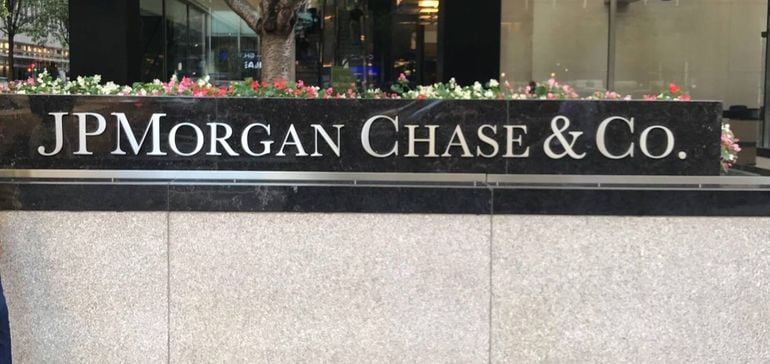JPMorgan Chase and Deutsche Bank asked a Manhattan-based federal judge Friday to dismiss lawsuits filed in November by alleged victims of disgraced financier Jeffrey Epstein.
“Jane Doe 1 is a survivor of Epstein’s sexual abuse, and she is entitled to justice,” but her claim is directed at the “wrong party” and, thus, is meritless, JPMorgan said in its filing, seen by Reuters.
The two lawsuits are seeking unspecified damages for violations of sex trafficking and racketeering laws and come after New York passed a law allowing abuse victims to sue even if statutes of limitations have expired.
The plaintiffs alleged Epstein’s sex trafficking enterprise could not have “existed or flourished” without the banks’ complicity.
“These victims were wronged, by many, not just Epstein. He did not act alone,” Bradley Edwards, a managing partner at Edwards Pottinger, a law firm representing the plaintiffs, said in a written statement in November.
JPMorgan and Deutsche on Friday asserted they had no duty to protect the women from Epstein.
The complaint “plainly established that it was Epstein’s conduct that was the direct cause” of the victims’ injuries, not the bank, Deutsche Bank argued, according to Bloomberg.
Deutsche’s lawyers said the complaint gives no factual allegation that the bank knew or should have known about Epstein’s sex trafficking. Further, the claims did not “come close to adequately alleging” that the bank was part of his circle of abuse. The bank was providing “routine banking services to a client, nothing more,” the attorneys argued, according to the wire service.
David Boies, a lawyer for the women, told Reuters he is “disappointed in the banks’ continuing effort to avoid taking responsibility for their role in the expansion and perpetuation of Jeffrey Epstein’s sex trafficking ring.”
More legal action
That, however, was not the only Epstein-related legal action filed over the holiday. The U.S. Virgin Islands, days earlier, sued JPMorgan Chase, accusing the bank of providing banking services to Epstein after he was convicted of sex charges in 2008 and failing to report suspicious activities.
“JPMorgan knowingly, negligently and unlawfully provided and pulled the levers through which recruiters and victims were paid and was indispensable to the operation and concealment of the Epstein trafficking enterprise,” the lawsuit said, according to The New York Times.
The bank should have known about Epstein’s illegal activities on an island he owned in the territory, and should have reported them as part of anti-money laundering due diligence, the lawsuit added.
“JPMorgan facilitated and concealed wire and cash transactions that raised suspicion of — and were in fact part of — a criminal enterprise whose currency was the sexual servitude of dozens of women and girls in and beyond the Virgin Islands,” the lawsuit said.
In a twist, days after the Virgin Islands lawsuit, the territory’s governor, Albert Bryan, fired Denise George, the attorney general who filed the suit, according to The Virgin Islands Consortium.
Bryan had been frustrated with George for some time, people familiar with the matter told the publication, and the JPMorgan lawsuit — which George reportedly filed without first informing Bryan — served as the final straw.
The Virgin Islands lawsuit aims to force JPMorgan to return profits from its business with Epstein and his companies and to pay unspecified damages.
George claimed JPMorgan’s willingness to do business with Epstein unfairly enriched it at the expense of other banks, according to Bloomberg.
George said her office conducted an investigation into Epstein’s activities and presented the findings to JPMorgan in September.
A JPMorgan spokesperson declined to comment to The New York Times and Bloomberg.
The Virgin Islands lawsuit comes roughly a month after George and the Epstein estate agreed to settle a 2020 civil racketeering case for about $105 million. That includes $80 million in repayments to the government for tax benefits Epstein inappropriately obtained, and about half the proceeds from the $55 million sale of Epstein’s island.
Epstein, who died in jail while awaiting trial on sex-trafficking charges in 2019, was a client of JPMorgan from 1998 to 2013, and of Deutsche Bank from 2013 to 2018.
Both banks have said they ended their relationship with Epstein after The Miami Herald published allegations about Epstein’s abuse in 2018.


